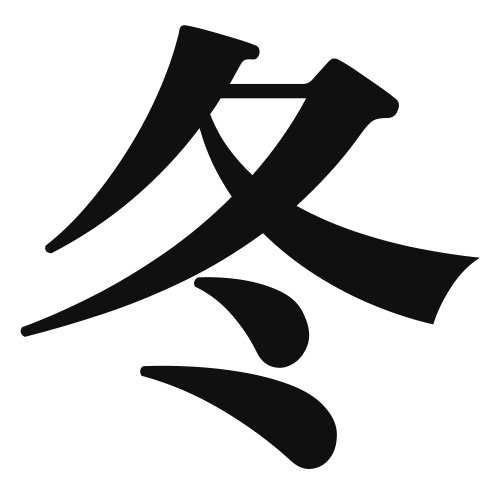1. Overview of Meaning
The kanji “冬” (pronounced “fuyu” in Japanese) means “winter.” It represents the coldest season of the year, characterized by snow, low temperatures, and shorter days.
2. Formation and Radicals
The kanji “冬” is a phonetic-ideographic character, which means it combines both meaning and sound elements. The character is composed of the radical 冬, which signifies the concept of winter.
3. Examples of Usage
Common words and phrases that include “冬” are:
- 冬休み (fuyuyasumi) – winter vacation
- 冬服 (fuyufuku) – winter clothes
Example sentence in daily conversation:
「冬は雪が降ることが多いです。」(Fuyu wa yuki ga furu koto ga ooi desu.) – “It often snows in winter.”
4. Synonyms and Antonyms
Similar kanji with related meanings include:
- 寒 (kan) – cold, which emphasizes the temperature aspect.
Antonyms include:
- 夏 (natsu) – summer, which represents the warmest season of the year.
5. Cultural and Historical Background
The concept of winter is deeply rooted in Japanese culture, influencing various traditions and festivals. For example, the Oshogatsu (New Year) celebration occurs in winter, marking a time for family gatherings and rituals.
Proverbs and idioms related to winter include:
- 冬の時代 (fuyu no jidai) – “the winter era,” which can refer to a period of hardship or difficulty.
